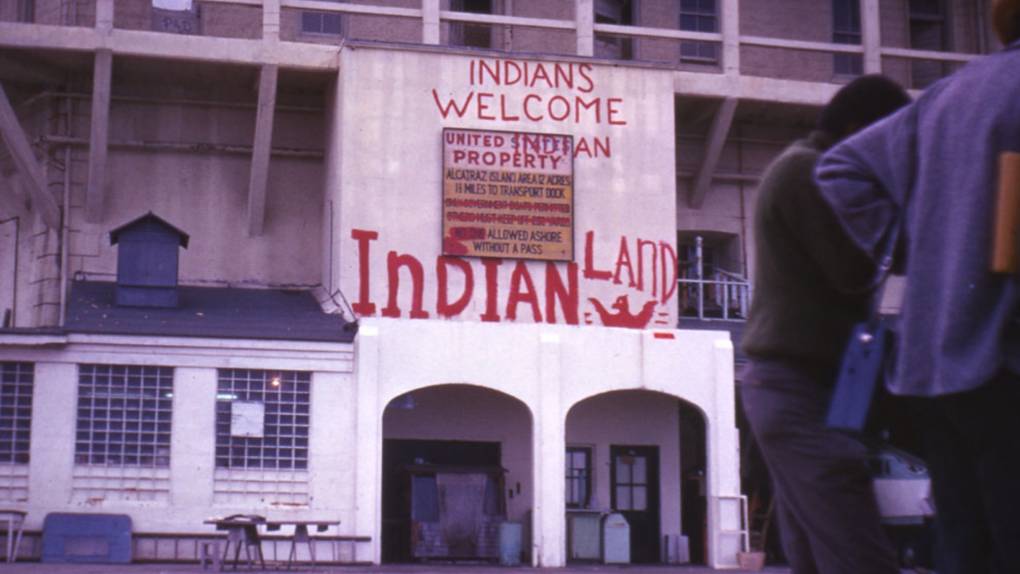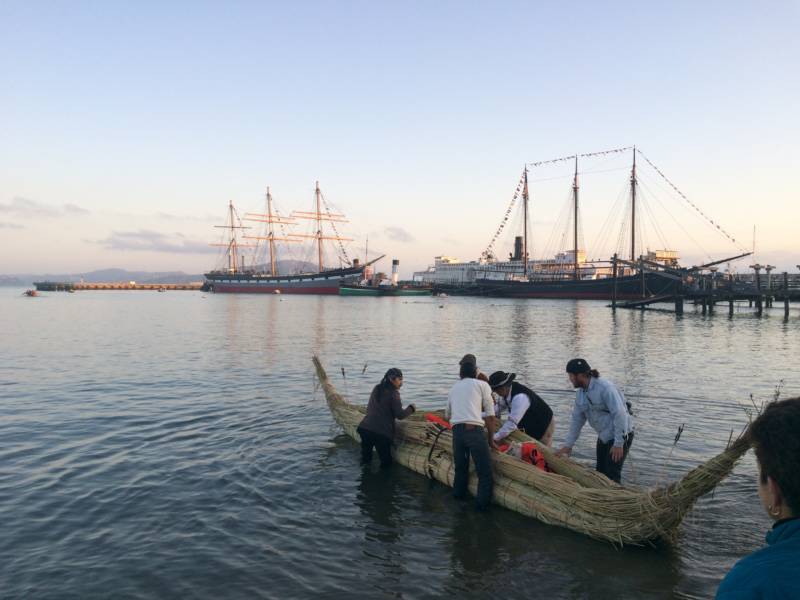This story was originally published in 2019
In October 2019, Native people from across the West Coast gathered in San Francisco to commemorate the 50th anniversary of the occupation of Alcatraz with a ceremonial canoe journey around Alcatraz Island. Each canoe represented a territory, tribe, community or family.
“It’s honoring the Native people. They took care of the earth and we’re still here,” said Ruth Orta, an elder with the Him’re-n Ohlone tribe. “We haven’t gone anyway.”
The occupation changed government policy forever and remains a blueprint for activism by Native Americans.
Looking Back
The occupation of Alcatraz began on Nov. 20, 1969, when a group of Native American students, calling themselves the Indians of All Tribes, landed on Alcatraz Island. They wanted to return the land to native ownership.
“We feel that if we are going to succeed, we must hold on to the old ways,” read the Indians of All Tribes’ call to action. “This is the first and most important reason we went to Alcatraz Island.”
Alcatraz was owned by the federal government, but the land hadn’t been used since the Alcatraz Federal Penitentiary closed in 1963. Native protesters argued that meant the island was theirs, according to the Treaty of Fort Laramie. It said any land abandoned by the federal government should be returned to the natives who once occupied it.
Protesters hoped the land would help their community gather and grow stronger.

“The idea was to have cultural centers,” said Eloy Martinez, a Southern Ute tribe elder who participated in the occupation in 1969. “The idea was for sovereignty, education. All those things that seemed easy for other people to get that we never have. Those were the things that the idea was about.”
There were 400 protesters on the island at the peak of the occupation. The protest gained lots of attention from the general public.
But like many other movements, the occupation also saw its share of obstacles. As the months passed, some student protesters left to return to school. Then Native Americans began complaining about freelance photographers and hippies making messes and eating their food. Drugs and alcohol also made their way into the hands of some occupants.
Then, a child fell to her death on a prison stairwell. The government cut off power to the island, and weeks later a fire destroyed a few historic buildings on the island. In June 1971, armed federal marshals forcibly removed the last of the Alcatraz residents.
The occupation lasted 19 months and is still recognized as one of the most important actions in contemporary Native American civil rights history.
It raised national consciousness, and universities around the country began to study Native American heritage. That event also created a network of activists and has been an inspiration for subsequent generations of activists.
This year celebrations commemorating this event will last as long as the occupation did. The next event is the Alcatraz Sunrise Ceremony on Thanksgiving Day.

